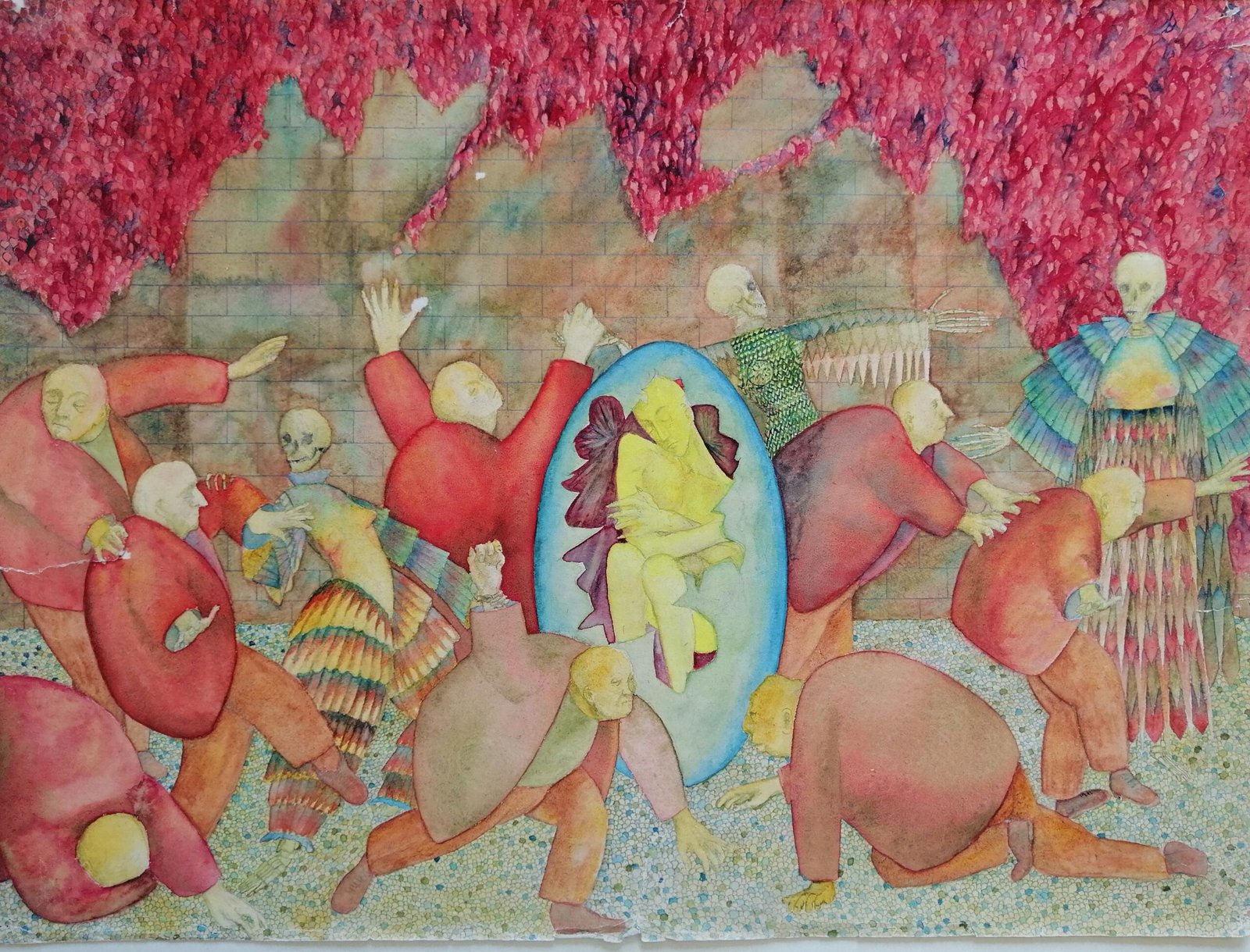A Fragment – Part 3
Barish resumed her travels and stopped in Malaya. She had read of a people living in the forest who dwelt in trees.. She decided to visit them as that they might tell her more about ‘anthropos’. She met men of the tree-dwelling tribe. Her interpreter helped her to enter their world.
To reach their tree-hut they climb a single pole leaning on the floor of the hut. The roof is made of branches woven with broad leaves and they spend most of their time under its shelter. They have blow-pipes about 8 feet long through which they blow a poisoned dart to kill a bird or small animal. Most time is spent in the hut and there they tell stories. In their sing-song speech they tell the stories of the tribe, where it came from and the origins of trees, animals and the spirits who protect them.
Barish was sure that such clues from an earlier consciousness might offer insights for us today. They had knowledge of plants and animals, medicines, sun and rain which seemed instinctive and part of their everyday. No laboritories or field studies. They belonged to a world of nature and spirit.
The time came to move on and Barish walked in three days to the shore where a small ship was anchored. The captain answered her signal and welcomed her when Barish asked for a passage east. The ship was carrying wood, metals and spices and fruits. Sailing on the broad ocean it was a joy for her watching the flying fish bring news from the deep up into the sunny air and the foam die away on the rolling seas.
As they sailed further and further east there was a threat of storms and the captain decided to moor in a nearby port. A thick mist suddenly descended and shrouded the harbour. He and Barish went ashore and in spite of the dark made out an inn which they entered. Some men were drinking who eyed them strangely. The atmosphere of the place was unwelcome. Evil spirits lurked in the shadows Nevertheless they ordered a meal and drink.
Some hours later Barish woke up. It was now dark and a few electric bulbs lit up the room. The captain was no longer there. Two unpleasant characters approached her and ordered her to come with them. She cried out and resisted but they dragged her out of the inn and through narrow streets into a large room where other women, some young girls, were gathered. Each had a number pinned on her dress. A rogue with a broken nose and a missing ear leered as he pinned a number on her breast. ‘This is our slave-market and the best of luck.’
Trumpets, drums and screams and the rapid shouts of a fat red-faced auctioneer, were her memories of a nightmare. Half-conscious Barish later found herself in a darkened room with windows set high up. Frightened and weary she fell asleep in a chair. In the morning she realized she was in a pleasant, carpeted room with paintings on the walls and a few books on a table. Some food had been brought while she slept.
The day passed without giving any sign of her situation and of who was in charge of her fate. She tried to open the door but it was locked with no key. She was clearly a prisoner, but of whom? She seemed to be housed in a splendid mansion as if someone cared for her. How did the delicious meals appear without her knowing?
A terrifying dread of the unknown, the horror of the slave-market and a slim sense of hope, as it all defied reason, were mingled as she lay on the bed. A second day then a third and a whole week dragged by with no new signs and no one to enlighten her on her situation. This emptiness was as hard to bear as all the other feelings that continued to harass her.
One morning a key turned in the lock and the door was opened by a teenage boy who stepped into the room. ‘My name is Naman and I want to be your friend. Can I come in?’ He closed the door behind him and held out his hand. ‘My mother is like you a prisoner on this island. She was captured many years ago and like you, was forced into the harem of the Master, Ismail whom you now serve. He is therefore my father. He is one of the wealthy who own this island.
Some are scoundrels who think only of money and their pleasures but he is different. He is a scientist, an astrophysicist who has his own observatory and follows the latest developments in this field. He is good natured and will do you no harm.’ Barish was horrified to learn she was now in a harem. ‘Then he will let me go if I ask him,’ Naman looked at her and said, ‘my mother had the same hope years ago and eventually gave it up. She comes from a village torn by war and her family live in poverty.
Here she has been able to study especially music and now plays the flute beautifully. She is lonely of course and misses friends and new acquaintances. I must go now or my teacher will wonder what I am doing.’ Suddenly he was gone leaving Barish with a lapful of fears and hopes. In spite of the dire situation she was in, she noted she was somewhat flattered at being desired by such a prestigious person. Barish was a prisoner. Her flight east had trapped her and the dream was now a nightmare.
I add a poem instead of a picture.
There’s no way back
the river flows
the music dies
and the party ends
cliffs fracture and fall
and cities pulverised
vast deserts are the legacies
of rich rolling fields of summer wheat
flesh wrinkles and dries
garments fray and fall apart
species vanish and stars collapse
and everything has its demise
does nothing hold
warmth ends in cold
the bravest hopes in sighs
speak up o love
and tell us true
yours not to bind
but make all new.

